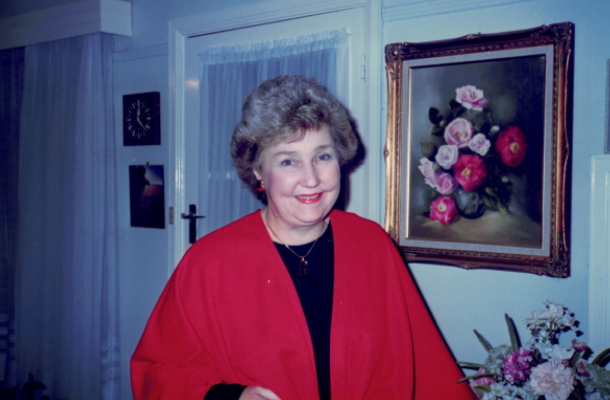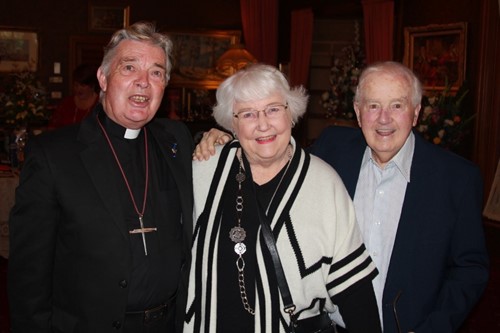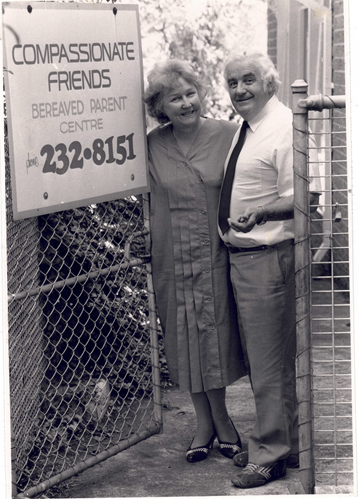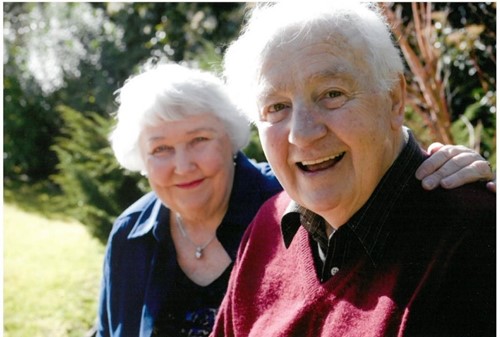
Executive summary
The Universal Business School Sydney (UBSS) commissioned Cyril Jankoff and Daniel Bendel to write a second book for them, a book on entrepreneurs. Its purpose is to give new local and international undergraduate and MBA students a feel of what every day Australian business success looks like. To give a realistic view of successful entrepreneurship, the authors chose 15 successful entrepreneurs and interviewed them. This is the 9th interview. Each interviewee was asked the same questions and at a later stage the authors reviewed all interviews and summarised the commonalities. The focus of the cases is on Sections III to VI.
Key points from this interview:
- The power of sharing your experience with someone that has also been "through it", called "the lived experience'', and also known as mutual self-help or "peer support''.
- Importance of taking some time out to avoid burn-out.
- Fid someone that can be a regular advisor or mentor.
- Hire a good publicist/marketer for your business, as in the long term they may be one of your most important advisers.
- Plan for future succession and a smooth transition.
Margaret Harmer
Margaret is a Melbourne social entrepreneur and the founder of The Compassionate Friends (TCF), a Not-for-Profit organisation, and a pioneer entrepreneur of the “Mutual Self Help” concept. Her personal mantra is “from those to whom much is given, much will be required”, this is the motto of Dr Wood, her former school principal at Methodist Ladies College.
Category: Social entrepreneur: A person who pursues novel applications that have the potential to solve community-based problems. These individuals are willing to take on the risk and effort to create positive changes in society through their initiatives. Social entrepreneurs may believe that this practice is a way to connect you to your life's purpose, help others find theirs, and make a difference in the world.
I. Key dates
- In 1950 Margaret at age 16 met Lindsay Harmer (21) a final year Pharmacy student from Shepparton, Victoria.
- In her matriculation year Margaret’s father was transferred from Perth to Melbourne and she found it hard to start anew.
- Her father did not encourage her to attend University, which she had wanted to do.
- After completing a business course, she became secretary to the general manager of The Sun news pictorial newspaper and later was secretary to one of the Herald and Weekly Times editors.
- In 1954 Margaret married Lindsay and before her age of 28 they had three lovely children Rosalind, Wendy and Rhys.
- In 1973 extreme sadness came into their lives when Lindsay, Margaret and Rhys (11) were involved in a car accident caused by an intoxicated speeding driver. Rhys was killed and Margaret seriously injured. Lindsay carried mental wounds due to the extreme tragedy of the situation, called Post-Traumatic Stress Disorder (PTSD).
- In 1978 Margaret and Lindsay founded The Compassionate Friends (TCF) organisation from the lounge room of their home in Glen Waverley. Lindsay was the Director and Margaret was President and they promoted the organisation on the relatively new concept of mutual support (self-help) for bereaved families. From the start it became a source of comfort for many where they could find support. In 1979 they brought out the International TCF founder, Rev. Dr Simon Stephens from the UK, and Margaret and he travelled to New South Wales and South Australia together and appeared on television. Margaret and Lindsay later travelled to country towns, and TCF chapters started throughout all states.
- In 1981 Margaret travelled to Western Australia and initiated the first meeting in Perth.
- In 1982 Margaret and Lindsay were able to set up the first Bereaved Parent Drop-In Centre in the world in Syndal, Victoria.
- In March 1991 Margaret and Lindsay stepped back from their managerial positions in TCF to allow others to take over and transition to the next stage. They were aware of “Founders Syndrome” and did not interfere in future decisions and management.
(Authors note – Founders syndrome is the tendency of founders to constrain other people’s ideas with their own) - In 2016 Margaret and Lindsay were each awarded the OAM (medal of the Order of Australia in the Queen’s Birthday Honours.)
- In 2019, Lindsay died aged 90 after several years of suffering from Parkinson’s disease and other illnesses.
- In 2021 she was made Co-Patron of The Compassionate Friends.
- Recent years: Margaret was involved in a range of activities within the community. See the list of hobbies and interests in Questions 2 and 3, below.
II. Getting to know the person
1. What is success?
Margaret sees success as being able to have a meaningful life of contribution, especially with the support of a happy family life. She feels fortunate to have had enough resources to live reasonably well, and which enabled her to give of herself to community work. Margaret feels it is ironic that had she gone to University rather than listen to her father, she may not have been able to devote herself to the community work which she believes was life's purpose.
2. What is your favourite TV show, movie or book and why?
- Television and film: Margaret likes television news and discussion about the news such as ‘Insiders”, Four corners, Australian Story, etc. She mainly watches SBS and ABC and loves historical and thoughtful shows like Compass, good movies, Netflix. Programs like Downton Abbey” and comedies like “Seinfeld”.
- Books: Since her childhood Margaret has been an avid reader and reads most types including thoughtful, crime, historical, romance, family sagas etc. Recently she has read “Any ordinary day” by Leigh Sales, “Brooklyn” by Colm Toibin and “American Dirt” by Jeanine Cummins.
3. What are your hobbies and/or interests?
At age 88, her family is her main interest these days with seven grandchildren and their partners plus almost twelve great grandchildren. Her elder daughter Rosalind died from cancer 6 years ago leaving three adult children with families. Margaret is very involved with her whole family now and finds them very supportive and interesting. Her main support is her remaining special child of three, Wendy.
Due to disability, Margaret has a limited range of interests now but in the past she was very involved with:
- Probus (a group focusing on fun, friendship and fellowship in retirement) and her friends in that group.
- Ancestry discoveries.
- St. Michael’s Uniting Church in Melbourne and Psychology lectures from Dr. Francis Macnab.
- Lifeline counselling on the phones and Save the Children Fund.
- She enjoyed surfing and beach days in summer.
She is not particularly interested in watching sport, except tennis finals and the Olympics.
III. Tips
4. How did you get through your worst times?
Margaret’s life with Lindsay, a pharmacist for 30 years in Glen Waverley, and with her family was once very enjoyable, successful and happy. Just after a long-awaited purchase of a beach house the car accident happened. Margaret herself was seriously injured. Lindsay after trying to cope with the accident scene, the death of Rhys and Margaret’s predicament was for some time badly affected by post-traumatic stress disorder (PTSD). He found it hard to return to operating the pharmacy but did so. They struggled on for the sake of their children. Their daughter, Rosalind had her VCE exams 2 weeks after the accident. In the time following the accident they looked desperately for help and support. They tried various doctors and therapists but could not find anyone on their “wave length”. Good hearted family and friends tried but seemed unable to help. The churches didn’t seem to strike the right chord either.
Margaret and Lindsay didn’t know anyone else that had lost a child and they felt very alone. In her loneliness, Margaret began to work for Lifeline (a charity providing 24/7 crisis support and suicide prevention services) as a telephone counsellor and found some friends there. Slowly the idea formed of the benefit of mutual (lived experience) assistance from people who has also gone through similar tragedies. This slow transformation got them through the worst of times. In later years, Margaret says they were always so relieved to see others similarly move on from extreme grief to being able to live again with TCF assistance.
5. What keeps your awake at night?
In addition to being worried about TCF and various bereaved parents Margaret was always worried about Lindsay, who had post-traumatic stress and various serious health problems for many years before he died in 2019. She advises that those were very stressful days. Their grief and resulting stress caused difficulties in getting peaceful sleep. However, fortunately these days she is much more relaxed about life, except for the usual aches and pains of older age.
6. What are your typical daily routines?
This was really dependant on the stage of life. Margaret is not particularly structured in terms of routines now but of course when the children were young and needed school transport, meals etc, a certain amount of routine was necessary. Lindsay always lived a totally structured life with the pharmacy to run. In those days Margaret would regularly go into the Pharmacy part time to do the banking, accounts and other work as needed. Lindsay would open the pharmacy about 8.30am and not be home until 6.30pm. These days Margaret rises about 8.30 and occasionally goes out, but not much these days and she no longer drives.
7. What advice would you give yourself starting out?
Margaret noted that to build the TCF organisation from scratch and to achieve its success it required the full and often overwhelming commitment of both herself and Lindsay. Margaret and Lindsay had complementary skills which worked well together. She does feel that in retrospect perhaps if they had taken more time off on a regular basis, they may have had a more balanced life. Looking back, it would have been helpful to have had a mentor, but she and Lindsay may not have accepted their advice. They probably would have only listened to another bereaved parent.
IV. Business case examples
8. Provide a case you managed well and why?
TCF was, in a sense, impetuously started. One night in 1978 she read the Herald newspaper and saw a small article about the Compassionate Friends in New York offering self-help for bereaved parents. Margaret says she and Lindsay then immediately knew this was to be their life’s passion. They hunted down the journalist who said that she would do an article for the new Melbourne start-up group but only after it commenced. Margaret advertised in the local paper for the new group and immediately people started coming to their home in Glen Waverly in response. The Journalist was true to her word and about three months later published a full-page article. This obviously tapped into a desperate need because they were inundated with bereaved families from then on. They then tracked down the English founder of TCF, Reverend Dr Simon Stephens (not easy in pre-internet days) and brought him out to Australia the following year to help publicise TCF throughout Australia.

Rev Dr Simon Stephens, Margaret and Lindsay Harmer - 2013
Before Reverend Simon’s visit they hired a publicist for a few weeks to make bookings for Simon including appearing with Margaret on various popular TV and radio programmes. They used this publicity to reach like-minded people in other states to explain the needs of bereaved parents.
For the first few years Lindsay ran the pharmacy business by day and worked for TCF at nights and weekends. Margaret spent most days doing TCF work including phone counselling, visiting parents and all the secretarial work. They both did a great deal of public speaking.
They continued holding regular meetings for bereaved parents at home but as they spread the concept and their work received considerable media publicity, the numbers grew rapidly, and they started to convene monthly ‘Friendship Nights’ in a large city hall they hired. They began writing, preparing and funding the post-out of a regular newsletter to bereaved parents throughout Australia, which so many parents acknowledged was like ‘raindrops on parched soil’.
As demand and need increased rapidly, Lindsay decided to close their long running, successful family pharmacy in 1981 so that he could devote himself to TCF and bereaved parents. They urgently set about obtaining Government funding to open an office outside their home and Margaret in particular worked assiduously at the task of grant applications. Margaret brought her past high level professional secretarial skills and her experience as a past president and secretary of community organisations including “Save the Children” Mt Waverley to these roles.
The first Bereaved Parents’ Drop-in Centre in Australia (and the world) was subsequently opened in 1982 in Blackburn Road, Mt Waverley. Other places had offices but not drop-in centres. The first government funding of $7,000 was used to pay for the rental of a five room apartment, utility services and for a part-time secretary.
About two years later a further grant was made to offer a small salary for Lindsay, obtain some equipment, pay postage and purchase library books and tapes for the library which was now in great demand. In addition to phone counselling and meetings with bereaved parents who called at the Centre, they wrote literally thousands of personal letters to bereaved parents all over Australia; all tailored to individual needs and also provided literature and tapes. Remember that there were no computers or email then.
As well as “friendship days” (and the “friendship nights” which were held in the city of Melbourne) some of the most successful innovations for the use of the centre were the holding of monthly individual special needs groups for parents of children who had experienced sudden deaths, illnesses, suicide, murder, baby deaths. Also held were men’s groups and social and “getting well” days featuring lunches, craft, cookery, film, music, fashion etc. The centre was used extensively.
TCF in the USA was a great source of support and benefit to both the Margaret and Lindsay and TCF, and ultimately they attended four inspiring conferences over the years at their own expense.
Today most Governments recognise the effective cost-benefit of these organisations that actually save it money by the use of volunteer peer support.

Margaret and Lindsay Harmer at the Syndal drop-in centre 1982
9. Provide a case that did not go well and why?
Case 1 - Loss of funding
During the economic recession of 1990-1991, along with many other charities, TCF suddenly lost their Government funding of approximately $72,000 per annum. This sadly resulted in them having to close the busy Syndal drop-in centre, known to members as their “oasis”. This tremendous disruption meant that all equipment and furniture had to be moved to Margaret and Lindsay’s home. They even had to have the photocopier at the end of their bed! This was an incredibly painful and difficult time when it was felt that all the gains seem to have been lost. Groups and meetings ceased and only the telephone caring remained.
Margaret then invited a Health Department official to visit who was shown the complete disarray of TCF files and equipment within her disordered home. Margaret lobbied the Government to simply fund a basic rental for a hall in Camberwell and promised to staff it with volunteers and paying all costs themselves. This offer was accepted and in March 1991 they moved to Camberwell and the recovery from this point was slow but ultimately successful.
Case 2 - The path to peer support policies and procedures
Along the way to establish mutual self-help there were some hard lessons to learn. One example she remembers was in one support group that she hosted; one person went too far in detailing gruesome details. As a result, the others in the group did not come back. Margaret realised the importance of establishing proper procedures and policies for TCF, including tactics for handling difficult situations.
Two other difficult situations come to mind: The first is that the Victorian Chief Psychiatrist requested Margaret to assist a mother in prison who had after murdered her two children. Margaret agreed to do this although it was outside of her peer support role and one which should have required a trained professional. Margaret did visit her in prison for some months and they related well but was advised not to continue by a local church minister and Margaret’s family who felt it was not her role. She was also contacted continually by the grieving prisoner’s mother. The second difficult situation was coping with the volume of new members wanting to drop into their home and contact the Harmers at all times (including a long call during Christmas dinner). It became like having a Lifeline (a charitable crisis support centre) at home. One bereaved mother came every morning at 8.15 am!
10. What conclusions can be drawn by comparing these cases?
The Harmer’s efforts, determination and entrepreneurial skills helped establish, run and expand the organisation. However, as has been seen it was often difficult to balance their family life with that of operating and expanding TCF.
11. What cultural issues did you experience? How were they overcome? How is Australia different? Were these business cases affected by cultural issues?
Margaret and Lindsay also invited an English social worker to stay with them (amongst many people who stayed over the years). The social worker remarked “where are all the Aboriginal people?” Margaret noted that in the community in which they mixed there were indeed very few Aboriginals. When attending USA conferences in the 80’s, she also noted only two black people were present. Margaret emphasizes that TCF has always been open to all races and religions. The TCF organisation worldwide is non-denominational. She advises that she has never witnessed any cross-cultural problems or issues.
V. Volatility (for example COVID-19)
12. How has volatility affected your business?
As Margaret is fully retired, the COVID lockdown did not have that much of an impact on her, although she has followed the discussions in the media and felt it was a good time for reflection on what is important in life. Margaret has followed the impact on TCF members and was impressed at the innovative ways that the organisation responded with on-line support groups and the 24-hour support line.
13. What lasting impact do you think it will have your business?
Margaret thinks TCF will need to continue to monitor their resources to cope in the future especially with regard to future government funding.
14. What have you learned from it that you will now implement in your business?
As mentioned in Question 13, it is flexibility, resources and risk management have now become integral in TCF.
VI. Family business
15. Are you in a family business, and from your experience what do you think are the advantages and disadvantages of family working in the business?
In the early stages it looked like a family business with Margaret and Lindsay. It is an interesting question for TCF because it is not a family business as we see in the corner grocery employing family members, but on the other hand TCF members see the organisation as a community, an “Oasis” that for many becomes their pseudo-family support.

Margaret and Lindsay Harmer (Dec) in 2009
Authors:




